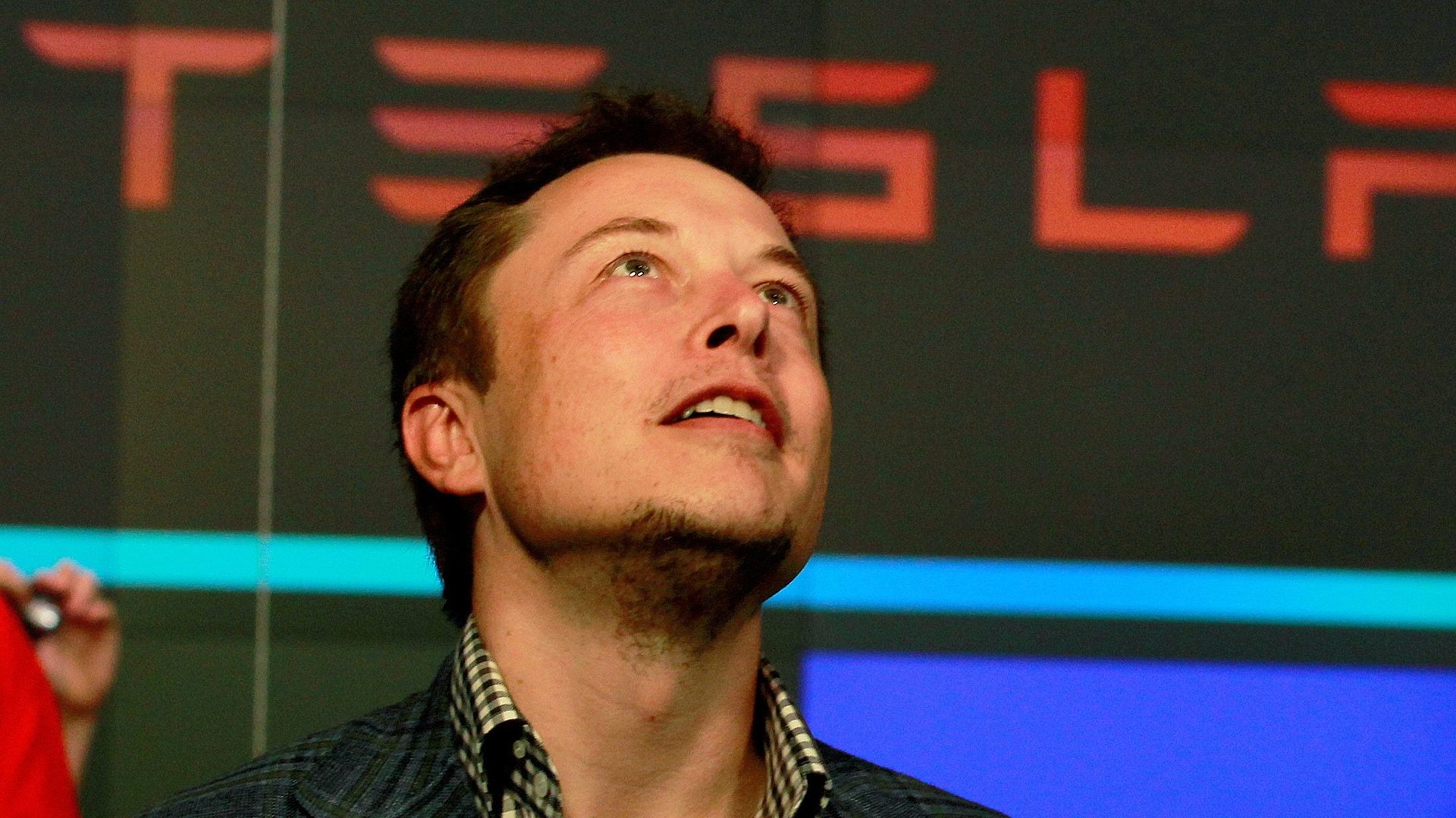Tesla won’t “make cars in India, sell in India, and export from India” anytime soon
Speaking on a climate action panel on Oct. 8, India’s transport minister Nitin Gadkari said he’s asked Tesla to not sell China-made electric vehicles in the country. Instead, he is urging the now Texas-based auto manufacturer to “make cars in India, sell in India, and export from India.”


Speaking on a climate action panel on Oct. 8, India’s transport minister Nitin Gadkari said he’s asked Tesla to not sell China-made electric vehicles in the country. Instead, he is urging the now Texas-based auto manufacturer to “make cars in India, sell in India, and export from India.”
But the road to these aspirations is ridden with speed bumps. CEO Elon Musk has repeatedly taken to Twitter to bemoan India’s local sourcing norms and high import duties. For almost five years now, it’s not even been able to forge a path to sell a Tesla in India, never mind make one—precisely because the government hasn’t made the concessions that would entice it to do so.
Tesla isn’t even selling in India yet
For Tesla, which made around two-thirds of the 568,000 electric cars sold in the US between 2017 and 2020, the Indian market simply isn’t lucrative enough right now. Despite a few enthusiastic early adopters who’ve been queuing up for a while, India’s EV industry is still in its infancy. In 2019-20, Indians bought fewer than 5,000 electric four-wheelers. Prices are steep and charging infrastructure is lacking.
Even if Tesla did enter the market, its products wouldn’t be priced competitively.
“I’m told import duties are extremely high (up to 100%), even for electric cars. This would make our cars unaffordable,” Musk had tweeted in 2019. He’s not wrong. The customs duty for fully built foreign cars costing over $40,000—which Tesla does—is 100%.
These high thresholds are a bid to protect domestic manufacturers, but they may be a little too high for the price-sensitive market. Even the least expensive Tesla will probably set buyers back 55-60 lakh rupees (between $72,000 and $80,000) given the current price tag and taxes, compared to the Rs 35 lakh ($) Gadkari claims it would cost.
In the US, the cheapest country to buy a Tesla in, customers have to dish out almost $60,000.
Electric car manufacturing in India is still far-fetched
Musk has also criticized the Indian government for mentioning clean energy vehicles in the same breath as petrol and diesel vehicles when comes to import regulation. This “does not seem entirely consistent with the climate goals of India,” Musk tweeted in July.
India knows it must look to EVs to cut air pollution and dependency on crude oil. And without import concessions, local manufacturing is the only way to make these cars affordable. The nation of 1.3 billion people has been trying to woo Tesla with lower manufacturing costs—seeking to take advantage of the world’s wariness to depend on China. Half a dozen states in India have rolled out the red carpet for Tesla to set up a plant.
However, before the government gives the company any tax breaks, it apparently wants to see detailed manufacturing plans.
Musk still sees an opportunity in the country, despite his qualms. In January, Tesla registered a company in India. It also has sourcing partnerships with at least three automobile component manufacturers in India, and is in talks with a handful of manufacturers to make components locally, CNBC-TV18 reported. But the company remains more focussed on testing the waters with selling in India first.
“If Tesla is able to succeed with imported vehicles, then a factory in India is quite likely,” Musk tweeted earlier this year. He’s hoping for at least a “temporary tariff relief.”
For now, Tesla’s paying more attention to markets where, in Musk’s words, “customers of our high-volume products are located.” The firm is ramping up capacity at its north American and Chinese factories, as well as kickstarting production of cars and batteries in Germany’s capital, Berlin.